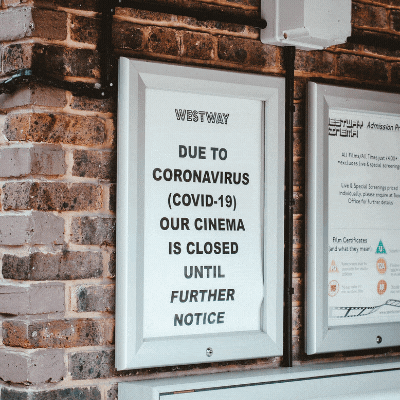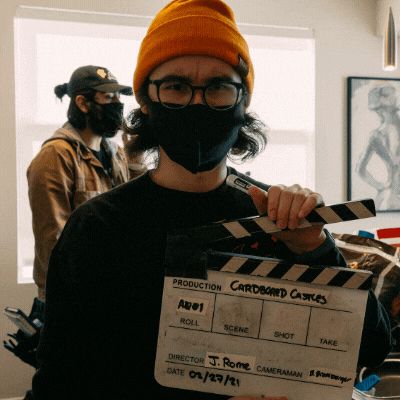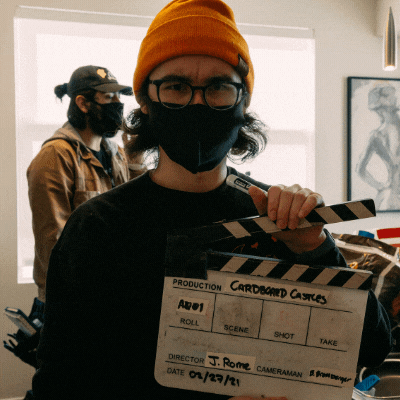When the Covid-19 pandemic swept the globe in 2020, life as we knew it came to a halt. Travel restrictions and stay-at-home orders went into effect. Workers faced lay-offs and businesses shut down, some never opening again. The entertainment business was not immune to the economic turmoil, with the film industry hit especially hard. From delayed releases to canceled productions, every sector of industry felt the total weight of the pandemic. A year later, Hollywood is still navigating the aftermath of the coronavirus.
The Box Office Falls

In the early days of March 2020, the number of positive coronavirus cases reached historical levels. Cities across the United States declared states of emergency to combat the spread. Social distancing recommendations made in-person theater experiences potentially dangerous. Governments in Europe and Asia responded by ordering the closure of theaters. Markets in North America remained confident despite projections of a 20% drop in revenue from 2019.
By March 16th, AMC — along with Regal Cinemas and Cineplex — had announced all of their movie theaters would be closing temporarily.
AMC Theatres, the U.S.’s largest theater chain, initially called for 50% capacity in their cinemas to comply with the Centers for Disease Control guidelines. Still, as cases in the U.S. continued to rise, movie-goers grew weary of seeing films on the big screen. By March 16th, AMC — along with Regal Cinemas and Cineplex — had announced all of their movie theaters would be closing temporarily. A few days later, Walt Disney Studios and Universal Pictures confirmed they would stop reporting data on box office revenue as ticket sales dwindled.
To Release or Not to Release

With the box office struggling to stay afloat, studios started to debate rescheduling the theatrical releases of feature films like Black Widow and Fast & Furious 9. No Time to Die was the first movie officially postponed. The film was initially rescheduled from its March 2020 release date to November of the same year. Ultimately, the film didn’t see a wide release until September 2021. Other films soon followed its lead.
Films expected to be steady performers like Peter Rabbit 2: The Runaway and A Quiet Place Part II faced indefinite delays and ultimately wouldn’t release for a full calendar year.
One by one, film studios attempted to predict a return to normalcy and shuffled around monthly releases. Films expected to be steady performers like Peter Rabbit 2: The Runaway and A Quiet Place Part II faced indefinite delays and ultimately wouldn’t release for a full calendar year. As releases backed up, productions in various stages shut down. Awards shows and film festivals moved to awkward zoom formats without live audiences. The film industry effectively ceased to function.
Streaming Saves The Day (Kind Of)

Streaming services emerged as alternatives to standard release formats, offering their subscribers digital rental options of back-burnered blockbusters. As Hollywood faced a complete standstill, some studios took the opportunity to partner with existing platforms. Warners Bros. agreed to release all of their 2021 lineup on HBO Max with simultaneous theater releases. Wonder Woman 1984 was the first major film to go through the new experiment. The film was initially slated for an August 2020 release before being moved to October. It finally landed on HBO Max on Christmas Day. 1984 failed to meet its box office expectations, only having taken in $166.5 million to date against its $200 million budget.
Other production companies seized the opportunity to launch their own platforms. The Walt Disney Company launched Disney+, a video-on-demand service housing releases through their popular subsidiaries like Lucasfilm, Marvel Studios, and Pixar. The accessibility for quarantined viewers was a boon for home entertainment, but the financial results were less than impressive. Originally expected to be a solid performer, Mulan only recouped $70 million in revenue against a massive budget of $200 million.
The accessibility for quarantined viewers was a boon for home entertainment, but the financial results were less than impressive.
Disney tried to pivot with later releases and took a page out of its competitor’s playbook by simultaneously releasing films on Disney+ and in theaters. The move also backfired; in July 2021, Marvel Universe star Scarlett Johansson sued Disney, claiming a breach of contract. In her lawsuit, she alleged that releasing Black Widow as a video-on-demand offering limited its potential success as a traditional theatrical release, limiting her compensation since her salary was partially based on box office revenue. The suit is still pending.
The Show Must Go On

With the industry trying to get back on track, studios are dealing with an entirely new reality. Increased Covid-19 testing requirements have slowed film productions. Some — like Robert Pattinson’s The Batman — shut down after stars returned positive tests. Insurance costs have surged. While more money may be a minor inconvenience for major studios, independent filmmakers have struggled to secure additional financing. Yet, it’s not all doom and gloom.
Insurance costs have surged. While more money may be a minor inconvenience for major studios, independent filmmakers have struggled to secure additional financing.
As filming resumes, local economies are bouncing back in states where productions were popular pre-pandemic such as Georgia. Streaming and online television are projected to grow; theaters are gradually reopening, but it’s been reported that 34% of U.S. consumers plan to continue watching television and film in socially distanced settings. Projections show that Netflix and Disney will add a combined $4 billion in revenue in 2022. The film industry may not ever be the same as it was before, but Hollywood is adjusting in new and surprising ways.
If you’d like to learn more about film and exploring the industry’s many careers, check out Yellowbrick’s Ultimate Film Career Guide.




